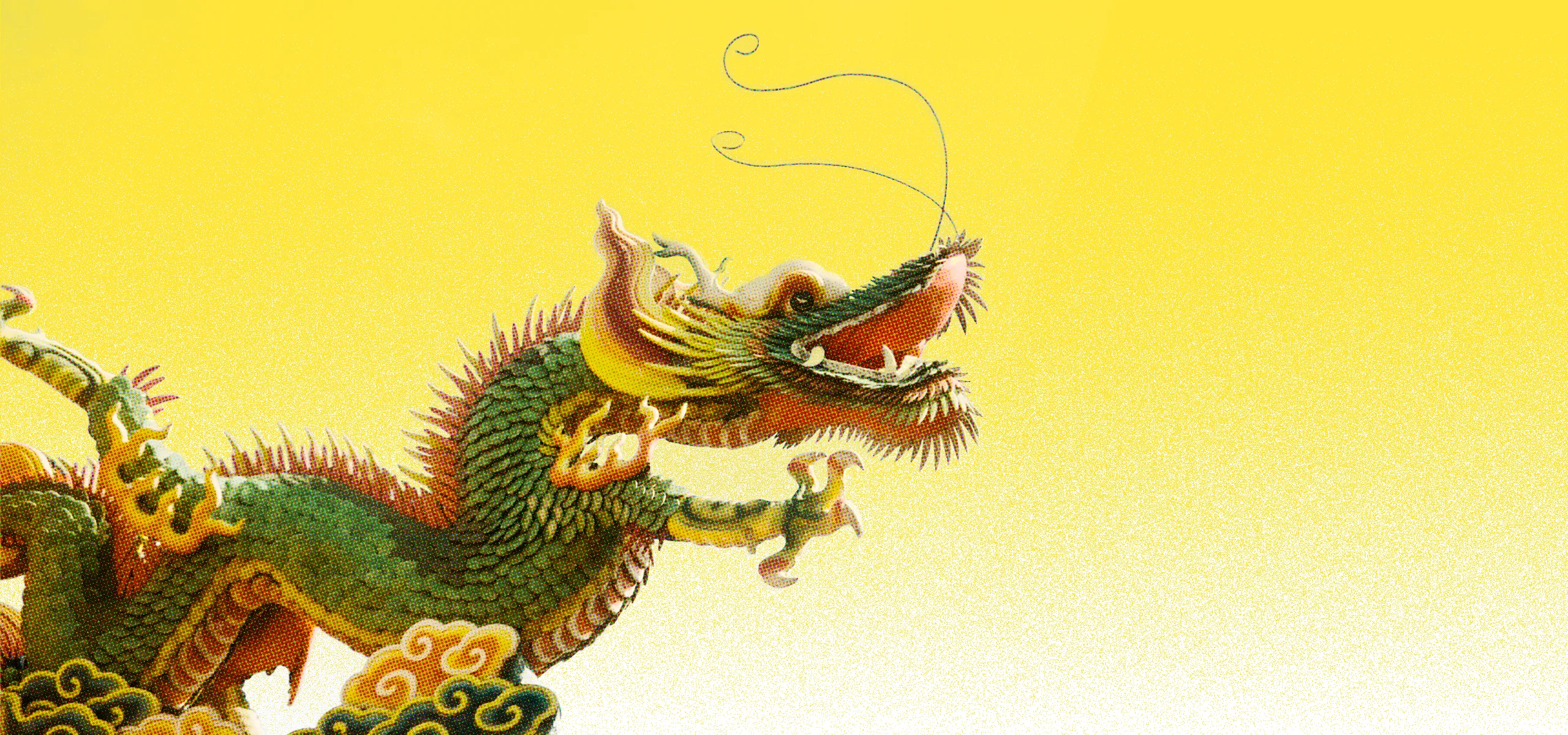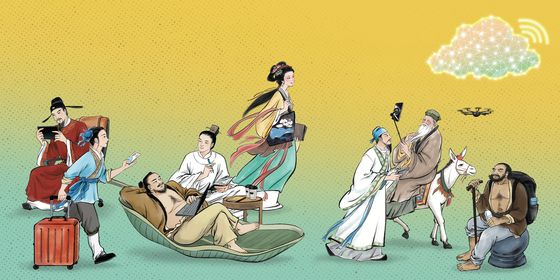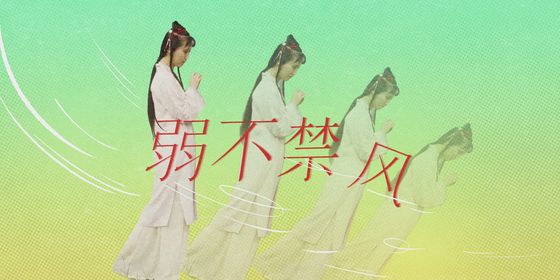Kick off the Year of the Dragon with some useful Chinese “chengyu” about this mythical creature
The Year of the Dragon has always been one of China’s favorite years. As one of the country’s most beloved zodiac animals, dragons have been seen as symbols of the nation since ancient times. Chinese people often even refer to themselves as “descendants of dragons.”
In traditional Chinese culture, dragons are powerful divine beasts, symbolizing authority, nobility, and good fortune. Many believe being born in the year of the dragon will bring them good luck. The belief is pervasive: China often experiences higher birth rates in dragon years.
Over centuries, dragon (龙 lóng) stories have formed dozens of chengyu, Chinese idioms normally consisting of four characters. Most of these idioms including dragons are positive, often describing a person’s outstanding appearance, status, or abilities.
For example, a talented or powerful individual is often referred to as a “dragon among humans (人中之龙 rénzhōngzhīlóng).” The leader of an excellent team may be hailed as the “head of a group of dragons (群龙之首 qúnlóngzhīshǒu),” and parents’ great ambitions for their children are encapsulated in the term “expect the child to become a dragon (望子成龙 wàngzǐ chénglóng).” Here are a few more dragon idioms and their fascinating stories.
Lord Ye loves dragons 叶公好龙
Han dynasty (206 BCE – 220 CE) scholar Liu Xiang (刘向) told the story of Lord Ye, a dragon enthusiast, in Xinxu (《新序》), a literary work containing stories and fables that carry profound morals intended to educate people. Lord Ye was an aristocrat of the State of Chu during the Spring and Autumn period (770 – 476 BCE). He claimed that he loved dragons so much that his belt buckles were carved with dragon motifs, his drinking vessels had dragon patterns, and he even decorated his house with dragon iconography.
A dragon in heaven learned of Lord Ye’s fondness for his kind and decided to surprise him with a visit to his home. As soon as Lord Ye saw the dragon, however, he ran away terrified.
The chengyu “Lord Ye loves dragons” is now used to satirize people who superficially express affection for something but do not genuinely appreciate it. When confronted with their supposed love, they reveal their fear or disdain for it.
For example:
He claims that he loves skiing, but it’s just a case of “Lord Ye loving dragons.”
他说他喜欢滑雪,但其实不过是叶公好龙罢了。
乘龙快婿 The ideal son-in-law can ride a dragon
Liu Xiang coined another dragon-related chengyu in his Biographies of Immortals (《列仙传》), where he recounts a romantic tale. Liu wrote how Nongyu (弄玉), a daughter of Duke Mu of the State of Qin in the Spring and Autumn Period, fell in love with a young man named Xiao Shi (萧史). Nongyu played beautiful music on the sheng, a reed pipe instrument, while Xiao was skillful with the xiao, a traditional Chinese flute.
After their marriage, they spent their days making heavenly music together in Phoenix Tower, which Duke Mu had built for them. Their tunes were so stunning they attracted phoenixes to the couple, and one day in a moment of musical magic, they each mounted magical birds and ascended heaven together, achieving immortality.
Liu’s initial text had no mention of dragons, but later retellings of the story said that Nongyu rode a phoenix and Xiao rode a dragon up to heaven. The phrase “the ideal son-in-law rides a dragon (chénglóng kuàixù)” remains widely used today to express admiration for someone else’s son-in-law.
This must be your dragon-riding son-in-law! What a charming young man!
这就是您的乘龙快婿吧!果然一表人才!
画龙点睛 Dotting the eyes after painting a dragon
This idiom originates from the story of Zhang Sengyao (张僧繇), a renowned painter during the Southern and Northern dynasties period (420 – 589). According to History of Famous Paintings Across Dynasties (《历代名画记》), the first comprehensive history of Chinese painting, Zhang painted four golden dragons in Anle Temple in Jinling (today’s Nanjing). But Zhang left their eyes unpainted, claiming that giving them eyes would make the creatures fly away.
People were skeptical about Zhang’s statement so he drew in the eyes of two dragons. The beasts immediately broke free from the wall amid thunder and lightning, soaring into the sky, while the other two dragons, still eyeless, remained in place on the mural.
The tale came to symbolize the significance of a final crucial step in any literature or art creation. The idiom is now widely used to describe the practice of using a few sentences to clarify key points in writing or speeches, thereby enhancing the content’s clarity and impact.
The last few sentences of the article really breathed life into the dragon by dotting its eyes.
这篇文章的最后几句真是画龙点睛之笔。
鱼跃龙门 Carp leaps over the Dragon Gate
The Records of Sanqin (《三秦记》), a historical and geographical text written in the Han dynasty, includes a traditional folk tale about carp turning into dragons. It describes a place called the Dragon Gate in the Yellow River, where the flowing river water formed a waterfall. Every spring, yellow carp in the river swim upstream against the current, and those that manage to leap over this waterfall transform into dragons.
This legend symbolizes the spirit of braving difficulties and striving for success. In ancient times, it was commonly used as a metaphor for success and social advancement such as passing imperial examinations or getting a promotion.
He got promoted to a managerial role. It’s truly like a carp leaping over the Dragon Gate.
他升职成了经理,真的是鱼跃龙门。












